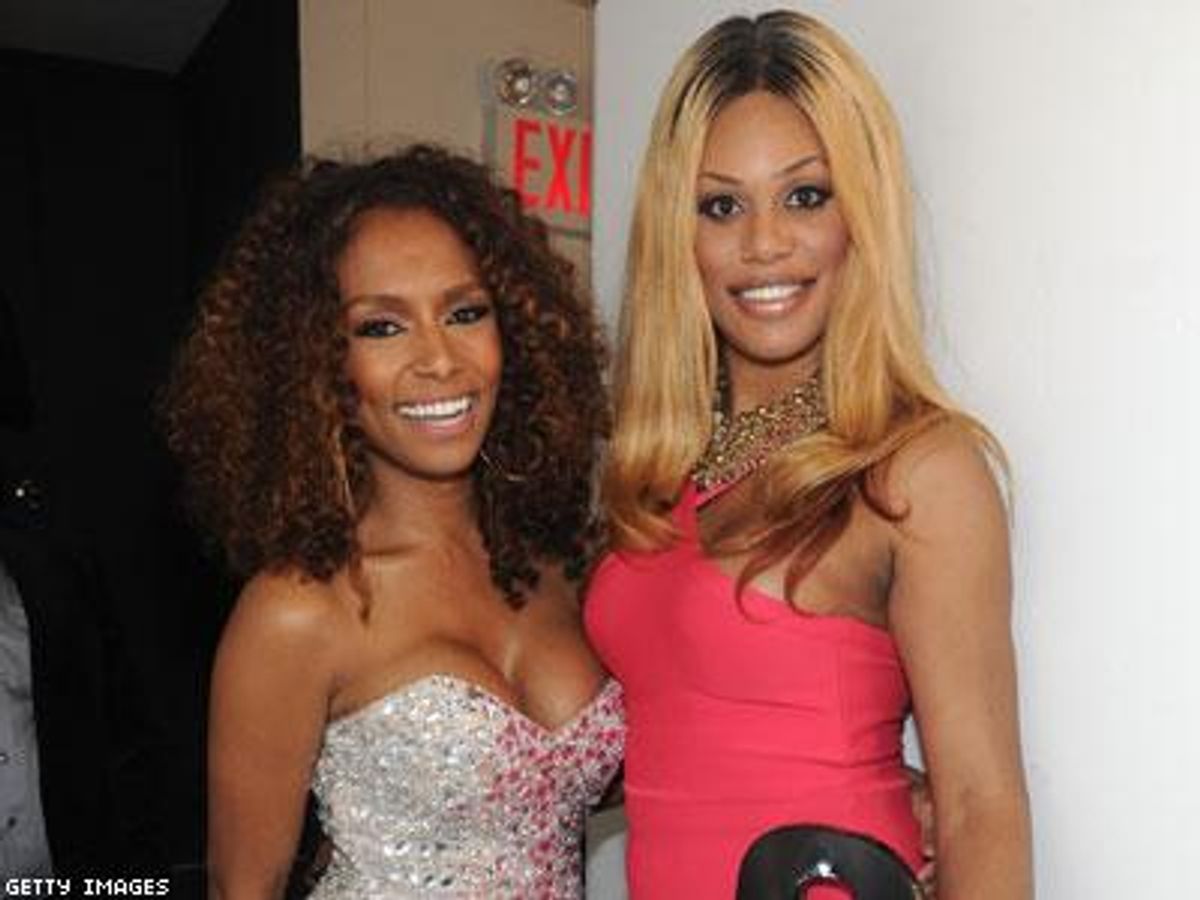Writer and transgender advocate Janet Mock is proving that black transgender women are a force to be reckoned with. Her uncanny commitment to push the causes of transgender women challenges traditional understandings of gender identity, womanhood and femininity. Mock is the founder of #girlslikeus, a cross-cultural, intergenerational, and radically inclusive movement with the goal of building solidarity among transgender women, while empowering them to live visibly. A believer in the power of storytelling, Mock has written a groundbreaking memoir, Redefining Realness: My Path to Womanhood, Identity, Love & So Much More, which chronicles her evolutionary journey to become the woman she is today.
Then you have transgender model and fashion designer Isis King, the first transgender woman to compete on America's Next Top Model. There's Kokumo, a music artist and founder of Kokumo Media, a multimedia production company that focuses solely on illuminating the experiences of trans, gender-nonconforming, and intersex women of color. And, of course, actress and documentary filmmaker Laverne Cox, star of the wildly successful Netflix series Orange Is the New Black and the first African-American transgender woman to appear on an American reality show.
These women are not only trailblazing in their respective fields, they are also committed to using their status in the public eye to bring awareness about the marginalization of black transgender women. In her recent single, "There Will Come a Day," Kokumo explores domestic violence among black transgender women, an area that is left out of the larger discourse on violence against women. Similarly, Cox is working on a documentary titled Free Cece, delving into the case of CeCe McDonald, a black transgender woman who was recently released from a men's prison after being sentenced for killing her attacker in an act of self-defense. The documentary will also likely shed light on the disproportionate amount of violence and trans-misogyny experienced by black transgender women.
Cox has also spoken up against the dehumanization and objectification of transgender women's bodies. This was most evident during a recent interview on Katie Couric's show, where Cox and transgender model Carmen Carrera appeared as guests. During the interview, Couric fixated on Carrera's and Cox's genitalia rather than their professional careers or the transgender community. Cox aptly shifted the conversation from genitalia to highlighting violence against trans people, including the vicious murders of Islan Nettles and Paige Clay, two black transgender women.
Black and African-American transgender women have a 50 percent greater homicide rate than their white, Latina, and Native American counterparts and were more than three times as likely to experience police violence more than any other group, according to a 2012 report by the National Coalition of Anti-Violence Programs on LGBTQ and HIV Affected Hate Violence. Results from the National Transgender Discrimination Survey show that black transgender women are disproportionately discriminated against and overrepresented across multiple disparities, including poverty (34 percent earn less than $10,000 annually -- twice the rate of transgender people of other races), housing (41 percent experience homelessness in their lives, and 38 percent have been refused housing because of bias), employment (26 percent unemployment rate, and 32 percent job loss due to bias), medical care (21 percent have been refused medical care due to bias), and HIV-positive status (20 percent). And half of respondents said they have had to resort to sex work and the distribution of illegal substances in order to survive.
While I have not experienced the unique challenges of life as a transgender black woman, these alarming statistics convey a reality that is not unknown to many black women. Whether they are cisgender or transgender, black women have historically been forced to navigate interlocking matrixes of oppression, while simultaneously fighting to be regarded as human. And it is these shared experiences, along with the shared identity as black women, that makes sisterhood between cisgender and transgender black women necessary for our collective survival.
Susan Stryker, author of Transgender History, defines a transgender person as one who has "moved away from the gender they were assigned at birth; people who cross over (trans) the boundaries constructed by their culture to define and contain that gender." One of the major myths about people who identify as transgender is that they are not "really" the gender they identify as; that transgender women are not "real" women.
However, as Stryker points out, gender is a social construction in which socially acceptable behaviors are assigned, based on one's biological sex, usually male or female. And like race, gender is rooted in white supremacist patriarchy that is marginalizing for persons who are born intersex (who have both male and female sex organs), are gender-nonconforming, or identify as transgender.
Given this information, it is imperative that cisgender black women be in solidarity with black transgender women. This will even require some cisgender black women to confront our own homophobia and transphobia, while reconceptualizing and expanding our notions of femininity and womanhood. Admittedly, given our socialization process in a society that "others" people who defy socially acceptable norms, some may be apprehensive. However, as cisgender black women, we must recognize that by engaging in sisterhood with black transgender women, we have the opportunity to elevate the voices of all black women, while honoring individual experiences and diversified contexts. As we advocate on the behalf of our black transgender sisters, we are ultimately advocating for ourselves and in doing so, we are sending the universal message that all black women's lives are valuable.
LIZ ALEXANDER is a budding womanist practitioner and social worker in training. Follow her on Twitter @radicalwholenes


















































































